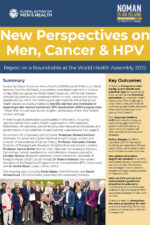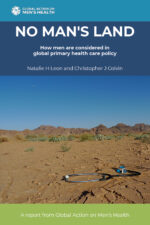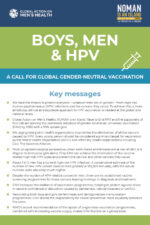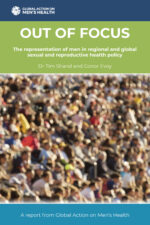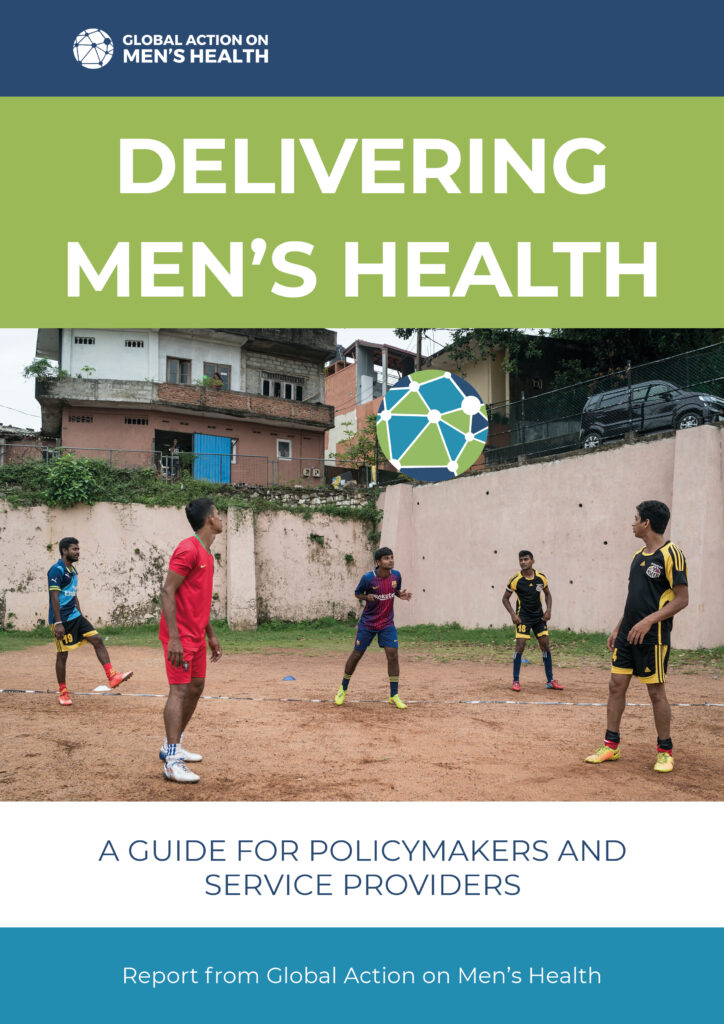Delivering Men’s Health: A Guide for Policymakers and Service Providers
GAMH has developed a new resource that will help health policymakers and service providers at all levels (global, national and local) to take practical steps to improve men’s health and wellbeing through the development and delivery of better-targeted policies and programmes.
The new resource is in two main parts. The first is a report, Delivering Men’s Health: A guide for policymakers and service providers (September 2021). This contains 10 key steps that can be taken for more effective engagement with men. These are:
- Collect, analyse and publish wide-ranging and regularly-updated data on men’s health to provide a guide to where action is needed and to its impact and effectiveness.
- Engage senior decision-makers, including politicians, to achieve faster and more significant progress.
- Listen to men’s voices to understand better what their needs are and how best to meet them.
- Introduce men’s health policies that address their health needs and integrate men’s health into other health policies, all with clearly identified and realistic deliverables.
- Develop outreach services that engage men ‘where they are’, such as local communities, sports venues, faith organisations or online.
- Recognise the differences between men and focus attention on those groups facing multiple layers of disadvantage and who experience the worst health outcomes. An intersectional approach is essential.
- Take account of gender norms by using appropriate ‘male’ interests and language to engage men in health (but without inadvertently reinforcing ‘traditional’ male gender norms).
- Ensure that the needs of boys and young men are reflected in the development and delivery of health policies and services.
- Use International Men’s Health Week and other health weeks and days as opportunities to promote men’s health.
- Take a ‘male-positive’ approach which builds on men’s strengths and is more likely to engage men and achieve changes in their health practices and the use of services (with the understanding that unacceptable behaviour by men must always be challenged).
The second part of the resource is a new GAMH database, hosted by Mengage at the Men’s Health Information and Resource Centre, Western Sydney University. This contains links to a large number of papers and reports that cover key issues such as policy, gender norms, equity and intersectionality, and examples of good practice. The database provides the detailed evidence on which the report is based.
GAMH will next be seeking partner organisations that will work with us on implementation of the guidance. This may involve additional fundraising for specific spin-off projects whose outcomes will be fed back into the new GAMH database and in relevant journals and other publications. GAMH also plans to incorporate the report’s findings into a new online training programme for policymakers and service providers.
The project has been funded by an educational grant of EUR 35,000.00 from Advanced Accelerator Applications (AAA), a Novartis company that is developing nuclear medicine treatments for cancer. AAA has neither sought nor had any influence on the project’s design, delivery or findings. The relationship between GAMH and AAA is at all times conducted in line with the ABPI Code of Practice for the Pharmaceutical Industry 2019 and GAMH’s ethical policy which governs its relationships with partner organisations, funders and other stakeholders.
The report was launched at GAMH’s Men’s Health Policy webinar on 27 September 2021.
Please note: The report contains an error on p10. The Quebec ‘policy’ is in fact an Action Plan and it applies to the Province of Quebec, not the city.
27 September 2021
